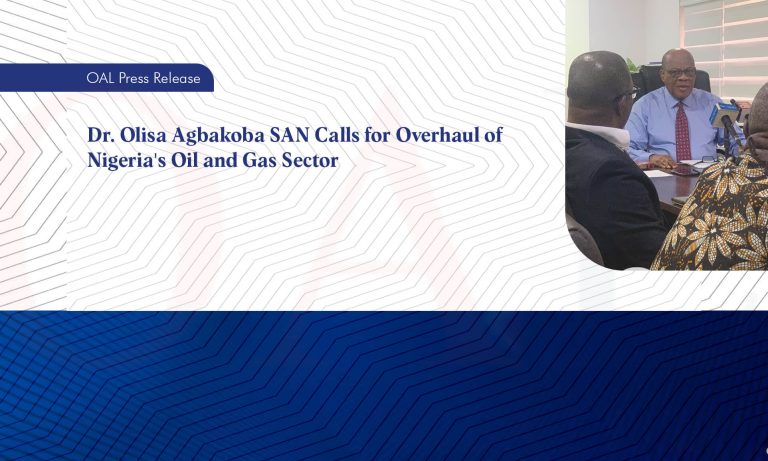

Startup Acts are Africa’s next frontier of policy innovation. If implemented in Nigeria, Startup Acts could catalyze positive change in the broader business environment by increasing local support for entrepreneurs and signaling to global venture capital investors that the country is open for business, thereby spurring innovation, creating jobs, and building trust between the governments and entrepreneurs.
African entrepreneurs have long been harmed by adverse regulatory conditions that make it more difficult to launch, build, and scale an innovative enterprise. For many businesses — particularly in nations like Nigeria, where elderly politicians reign over a young populace — the government often appears out of touch with their needs. Changing this view, which is a critical first step, requires new policy creation that prioritizes the interests of entrepreneurs, investors, and other stakeholders.
Startup Acts may be able to assist. Startup Acts are a collection of regulations intended to boost the incentives for young people to start businesses, investors to invest in potential enterprises, and other ecosystem actors to offer help where it is needed. Tunisia and Senegal, the two early adopters in this space, are implementing these rules as part of broader government initiatives to position their nations as innovation hubs by capitalizing on a developing technology scene to boost economic development.
What is a Startup?
Startups are young companies founded to develop a unique product or service, bring it to market and make it irresistible and irreplaceable for customers. Startups are rooted in innovation, addressing the deficiencies of existing products or creating entirely new categories of goods and services, thereby disrupting entrenched ways of thinking and doing business for entire industries.
The word ‘Startup’ has now become a popular buzzword , given the growth of the entrepreneurial culture globally yet it is surprising that there are still only a few countries which have passed legislation that actually supports the Startup ecosystem. They create more jobs which means more employment, and more employment means an improved economy. Not only that, startups also contribute to diversifying the economy by stirring innovation and injecting competition.
What is a Startup Act?
Startup Acts establish rules, policies, and in some cases, unique institutions that strengthen a country’s or jurisdiction’s entrepreneurial ecosystem.
Startup Acts provide financial and tax benefits to start-ups. For example, the incentive covers startup expenses, regulatory impediments, the establishment of organisations and funds that support entrepreneurship, and the establishment of an expedited process for intellectual property registration.
In 2012, Italy became the first country to pass the Startup Act followed by Tunisia in 2018 becoming the first African country to pass a startup Act. Senegal followed suit in 2019, making them the second African country.
The Tunisian Startup Act
There are three features of the Tunisian Start up Act. These features have enabled significant increase in the Tunisian economic hemisphere.
Firstly, the Act implemented a legal framework which makes the start-up launching process simpler , ease of doing business.
Secondly, the creation of a 200m (Two Hundred Million) Euro Fund of Funds, for disbursement to specific Small and Medium Enterprises (SMEs) sectors.
Thirdly, the creation of an operational strategy to consolidate the ecosystem and hubs in Tunisia. The Startup Act, which is in Arabic, has brought about impressive innovation, which has benefited the Tunisian economic sector. Some of these are:
- Founders can benefit from an allowance given to them alongside the shareholder to cover living expenses for one year
- The provision of state support for start-up patent registration procedures and fees at both national and international levels.
- Leave allowance support such that a member of staff of a company can go on leave for up to a year to dedicate themself to the launch and development of their start-up. If such a startup fails, he can revert to working in the company he took leave from.
- Tax exemptions for startups for up to eight years.
- Exemption from Capital Gains Tax on investment made in these startups.
As at December 2019, 169 of more than 279 companies which applied under the Tunisia Startup Act were granted the startup recognition. 37 (21.9%) of the 169 startups were run by female founders. About $18.5 million funding has been raised by all the startups so far.
Data from the official website of Entrepreneurs of Tunisia (EOT) reveals that startup coworking spaces in Tunisia increased by 61.2% from 38 in 2018 to 62 in 2019. There was also a significant increase in the number of startup founders across the country plus increased funding from investors, due to the business-friendly terms the Startup Act offers.
The Senegalese Startup Act
The Act, written in French makes some provisions as to the incentives and benefits a startup can partake of as a result of the Act.
The incentives are, but not limited to the following:
- Three-year tax holiday for startups and SMEs.
- Direct granting of private or public funding to registered startups
- The implementation of capacity building measures for the startup.
- The implementation of support, facilitation and development measures for the startup.
Why Do We Need a Startup Act in Nigeria?
In Nigeria, the laws that govern Startups and SMEs are found in different legislations, which makes for proliferation of taxes to be paid to numerous agencies. The legislations also provide for the payment of tax to different regulatory agencies. Some of these legislations are:
- The Companies and Allied Matters Act, 2020.
- The Investment and Securities Act
- The Companies Income Tax Act.
- The Personal Income Tax Act.
- The Standard Organisation of Nigeria Act.
- The Financial Reporting Council Act, No.6 2011.
Using Tunisia and Senegal as case studies, and noting the economic developments the Act has brought about in Tunisia, having a Startup Act would be the next way forward.
The private sector accounts for up to 80percent of employment in the country and drilling further down, majority of the companies in this bracket are classified as micro and small businesses.
With major economic decline and a tough operating environment, the average Nigerian business owner becomes highly resourceful, however they are unable to lift themselves out of their income bracket.
A start up bill which will acknowledge the potential of start ups and provide assistance is long overdue. Fortunately, there is talk of the first draft of the startup bill being put before the National Assembly by August.
These are the major reasons why we need a Startup Act in Nigeria:
- There will be a diversification of the economy. A Startup Act in Nigeria will create means of employment in other sectors asides oil and gas, banking, etc.
- Creation of employment opportunities. Having a Startup Act in Nigeria will cause more employment, thereby reducing it from 33%. A Startup Act will create a friendly environment for startups to thrive, thereby encouraging people to get involved. This would indirectly create employment opportunities for people as human capital would be utilised.
- There will be ease of doing business. Currently, your average startup is taxed by no less than 4 regulatory agencies. The regulatory burden on startups in Nigerian is one of the highest in Africa. People don’t get involved in startups because of this. However, having a Startup Act in Nigeria will change that. Using the example of Tunisia, a startup having a tax holiday of up to eight years will have a tremendous positive impact on the startups. They get to become the best versions of themselves.
- Active governmental participation. The Nigerian government would become involved in the affairs of SMEs making it easier for them to get funding, either from them or from venture capitalists. They would help to build capacity of the citizens, facilitate seminars and trainings for individuals.
Nigeria has all to gain considering we are one of the economic giants in the African continent.
Written By:
Opeyemi Oyedele
Associate Intern, Olisa Agbakoba Legal (OAL)
Author



